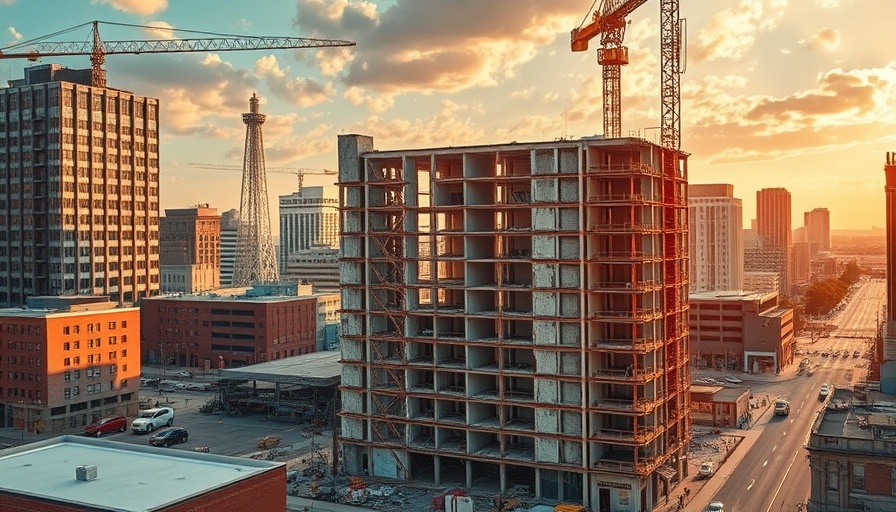
The Demolition Debate: A Painful Loss for San Antonio’s Heritage
The historic Institute of Texan Cultures (ITC) building, a symbol of cultural pride for many in San Antonio, is facing demolition despite ongoing efforts by preservation advocates. The Conservation Society of San Antonio had hoped to halt this decision, arguing that historic properties contribute invaluable narratives to the community. However, a recent ruling by the 15th Court of Appeals dashed their hopes.
Understanding the Historic Value of ITC
Constructed for the 1968 World’s Fair, the ITC has long been a central hub for cultural education, showcasing the diverse histories and stories that shape Texas. Despite its significance, the push for modernization, driven by the plans for a new Spurs arena and accompanying entertainment district known as Project Marvel, called the ITC's future into question. According to Lewis Vetter, president of the Conservation Society, "Once again, a public building is being destroyed with public dollars and no public hearing." This loss is more than just about a building; it represents the erasure of a space that fostered community identity.
The Legal Battle: Rights and Realities
The judicial decision to proceed with the demolition came down to issues of jurisdiction and the arguments made about sovereign immunity. The city and university asserted that due to legal protections, they could not be held accountable for the demolition action. These legal intricacies left preservationists feeling frustrated and powerless, as reinforced by an attorney’s claim that further delay for sensitive asbestos remediation would be "irresponsible." This situation raises critical questions about the balance between development and preservation, especially in growing cities like San Antonio.
Community Reactions to Demolition
As the decision to move forward with demolition becomes concrete—quite literally—the emotional response from the community reflects deep divisions. While many citizens support new development aimed at enhancing local economic prospects, others express concerns about the loss of heritage, identity, and community spaces. With ITC now dismantled, discussions about what constitutes valuable communal heritage become essential. Surveys indicated that a significant portion of San Antonio residents believed cultural landmarks should be preserved for future generations.
Shifting Narratives: The Future of San Antonio’s Cultural Heritage
As San Antonio continues to expand, the loss of the ITC speaks to broader patterns of urban development where heritage often plays second fiddle to commercial interests. What does this mean for local governance and community activism when it comes to safeguarding places of importance? Future developments must consider the lessons learned from this contentious journey. The push to balance modern progress with historical preservation is likely to influence urban planning debates moving forward.
Local Triumphs Amidst Setbacks
In 2024, the Conservation Society successfully restored the ITC's place on the National Register of Historic Places and secured a State Antiquities Landmark designation—small victories in a larger battle for preservation. While these steps were not enough to save the building, they underline the importance of continued advocacy and community engagement when it comes to matters of local history. The future may hold hope for other heritage sites conscious of the strategies employed in this case.
As San Antonio moves forward, residents are urged to remain vigilant and engaged regarding the preservation of cultural landmarks, ensuring that future developments do not come at the expense of their shared heritage.
 Add Row
Add Row  Add
Add 




Write A Comment